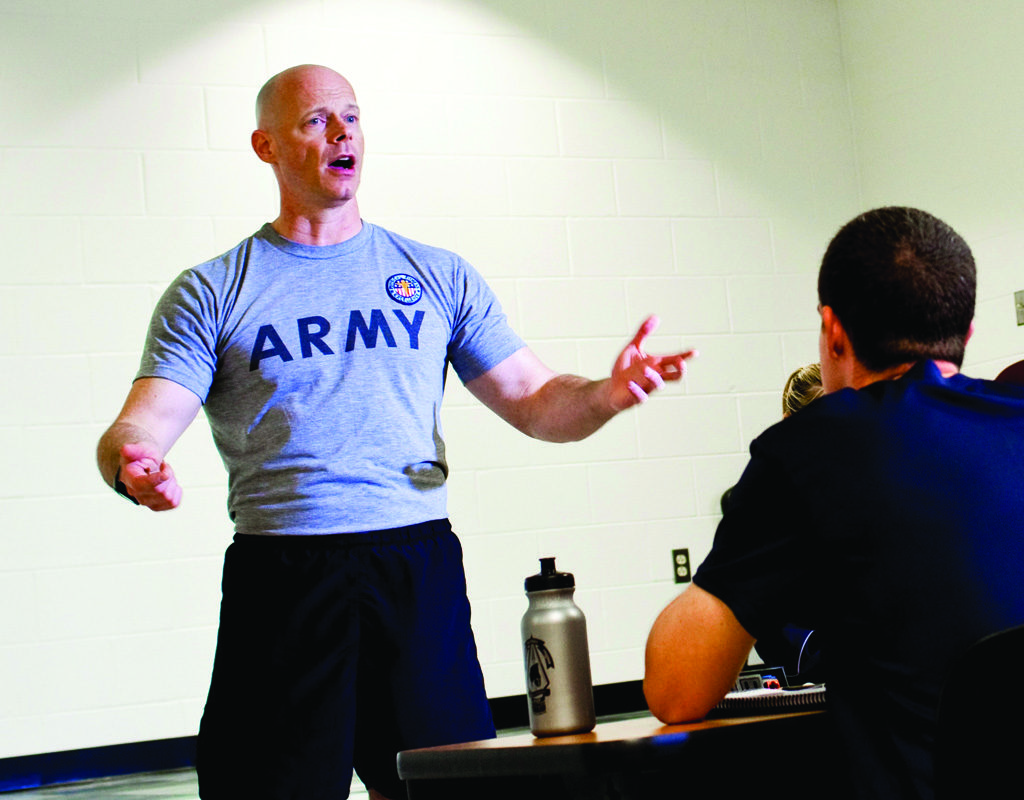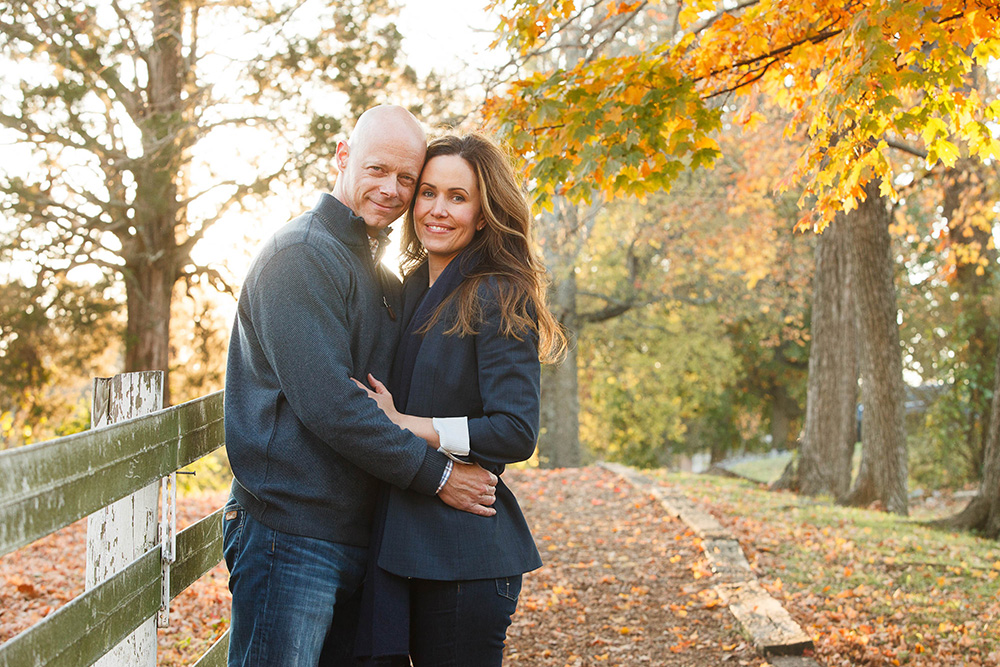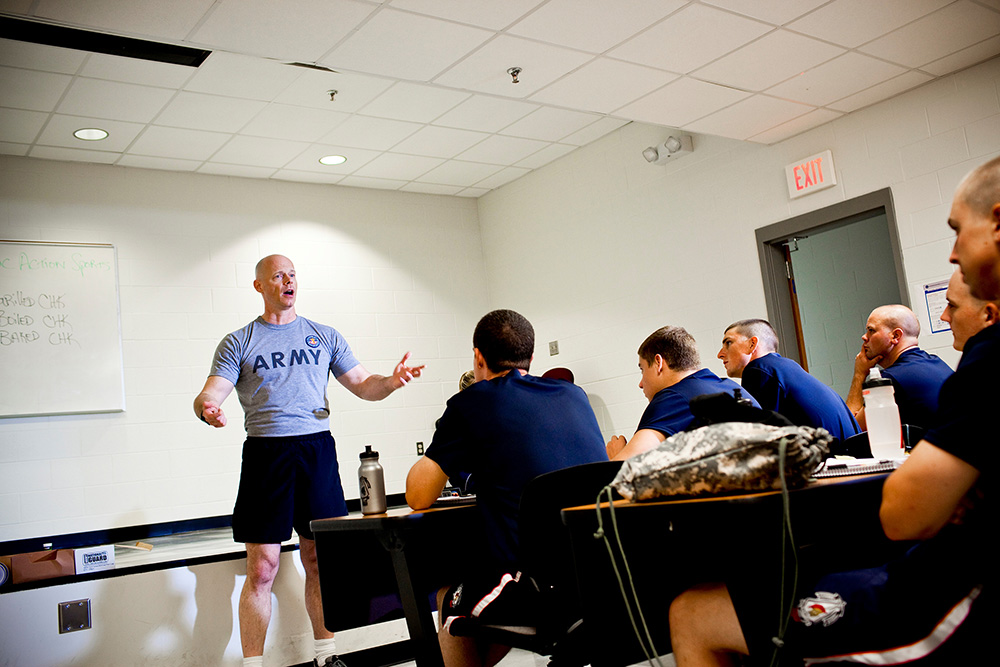Resilience Works!: What You Go Through, You Work Through™

By “SGT Ken®” and Stephanie Weichert

I sat painfully nervous inside a Boeing-747, making our final approach toward the San Francisco International airport after a 13-month tour of duty in Iraq. I had been traveling for 48 hours straight. I would soon be embracing my wife that I had to leave behind only hours after our marriage ceremony, and reconnecting to a strangely peaceful civilian life.
My year away was much like living in the fourth quarter of a challenging football game, but the clock never ran out. My mind was slipping into numerous daydreams of each mission. Looking at the faces of my brothers and sisters in arms, I could tell that I was not alone. All of us were partly still there. We sat silent, covered in grass, grime, sand and sweat. Now it seemed like we were all just waiting for the winning touchdown.
What happens when the game finally ends? When the adrenaline spikes subside and you realize that you will no longer have the support system of your comrades around you, you go home exhausted and uncertain of what lies next. In my case, I went home to an eerily quiet apartment. I needed to learn how to reconnect to life, love, and contentment.
I knew that I would resume teaching fitness classes, however I could not shake the feeling that something inside of me had changed. I was coming home a different person. Each point of connection with my old life felt strange and unfamiliar.
It took time, but I bounced back. Best of all, I realized that I was now a stronger person because I learned from my experiences.
My new mission: Show others how to turn stress into strength and obstacles into opportunities.
I learned some simple strategies to help navigate the homecoming for anyone and to help people in any season of change, uncertainty, and unfamiliarity.
Seven years following my deployment, I graduated from the Master Resilience Trainer course at the University of Pennsylvania School of Positive Psychology. It further reinforced the skills I’d learned by trial and error. These skills can help put you on a fast track to overcoming adversity and navigating uncertainty.
One of the most impactful moments of the course for me was when Dr. Karen Reivich defined Comprehensive Fitness as the combination and balance of five dimensions: Physical, Emotional, Social, Family, and Spiritual. I learned that fitness was not just physical anymore. This new perspective provided a certain validity to the power of emotional fitness. It changed everything for me, even in the way that I trained others.
The results were astounding!
There are two things that can happen when you face an obstacle: fall apart or bounce back. Dr. Martin Seligman, one of the founders of Positive Psychology defines resilience (sometimes called emotional fitness or mental toughness) as the growth experienced when you can face adversity. Resilience is a powerful positive psychology skill that helps you eliminate counter-productive thinking and focus on authentic happiness.
We all have defining moments of change and uncertainty. Best selling author, Dr. Brené Brown, says navigating these times requires a level of vulnerability and courage. You can apply them in major life circumstances like I did or you can also use them with smaller issues that pop up from time to time.
Use the following eight resilience tips to help you navigate through uncertain and challenging times:
Connect for Effect.
A good support system will help you when you face adversity in life. Do your absolute best to strengthen your relationships with family and friends. Know when to ask for help from the people that you care about, and to accept it. Good friends can remind you of your best self, your best traits, your highest goals, and can also reconnect you with your deepest values and beliefs. Write a short list of the people in your support system. Are these people a healthy source of influence for you? Can you rely on them as a source of strength in your life? Write your list now.

Acknowledge the Evidence.
You cannot always control your circumstances, however you can always control your response. Don’t allow counterproductive thinking to overwhelm you when things don’t go as planned. Look at the evidence at hand, and base your decisions on the right perspective. Think back to a situation where you gave a quick reaction. How could you have slowed down and done things differently? How could you have offered a more thoughtful response instead of a reaction? Write it down.
Push for Perspective.
Pain is temporary. It might last for a day, a week, a month, or a year. When we are in the middle of it, it can feel like it will last forever. If you will press forward, eventually your pain will subside. Pushing for perspective means to look at your situation with a broader outlook in order to discover a suitable solution. What is the story you’ve been telling yourself about an uncomfortable situation? Is it helping or hindering you? Consider writing a new version of the old situation, from a position of strength and love. What can you tell yourself that will help put the story to rest and help you move forward.
Champion through Change.
When you bounce back from adversity, you land on higher ground because you learn from the experience. Accepting change will help you to gain clarity in your purpose. Without clarity in your purpose, you cannot see the opportunity in your practice. Circumstances may have changed, you might have changed, but there is still hope for your future. If you want to connect to your deepest sense of purpose, start with your values. Your purpose will always stem from your highest values. Make a list of your top five.
Go for Your Goals.
Discovering and documenting your goals will keep you on the right path toward success. Take advantage of the holidays by brainstorming about what you want to accomplish in life. Come up with a list of at least 50 goals. Keep in mind that is only five goals a year over the next 10 years. The key is to get them out of your head and on to paper. The simple act of writing your goals will help you see things not as they are, but as they can be. Writing your goals helps to turn your thoughts into actions.
Live to Learn.
Resilient people learn how to turn stress into strength and obstacles into opportunities. Search for a solution when you face adversity. Your test in life can become your testimony. In her book Rising Strong, Dr. Brené Brown discusses the notion of a second act. You might have failed at something in your past but your second act is right around the corner. Write down one thing you can do to move closer to your second act.
Opt for Optimism.
Optimistic people live healthier lives and are less likely become overwhelmed with counterproductive thinking. Remember to focus on your purpose and what you want in life, rather than the things that get in your way. Reflect on things that empower you. If you have a critical voice in your head, give yourself permission to stop that voice and to begin saying positive things about your actions and your life. It’s time to believe good things are in store for you. Our experiences will eventually catch up to our beliefs. What do you believe about your future.
Be Your Best.
Wake up, wind up, workout, wind down, and repeat. Spend each day in search of an active lifestyle and make certain to take the time to relax and recover. You are always taking care of others, but in order to be your best you have to take the time to take care of yourself. This means you need make time to exercise regularly and time to rest and recover, so that you will be ready for whatever life throws at you.
Lastly, keep in mind that failure is an event and not who you are. Without challenges in your life, you simply will not grow. Albert Einstein once said, “In the middle of difficulty lies opportunity.” Indeed, our brokenness leads to our brilliance.
Conclusion
By incorporating these resilience tips into your daily life, you will discover a new passion to pursue your highest purpose and truly rewarding relationships.
Catch Sgt. Ken at canfitpro EAST and make sure to take his course, The Road to Resilience.
Join Sgt. Ken for the Boot Camp Instructor Certification Course:
- 26 May 2019, 9:00am-5:00pm, Session #4002, canfitpro EAST in Halifax, Nova Scotia, Canada
- 14 August 2019, 8:00am-4:00pm, Session #4002, canfitpro 2019 in Toronto, Ontario, Canada
References
Brown, B. (2015). Rising strong: The Reckoning. The Rumble. The Revolution. New York: Spiegel & Grau a division of Random House.
Reivich, K., & Shatté, A. (2003). The Resilience Factor: 7 Keys to Finding Your Inner Strength and Overcoming Life’s Hurdles. New York: Broadway Books.
Siebert, A. (2005). The resiliency advantage: Master change, thrive under pressure, and bounce back from setbacks. San Francisco: Berrett-Koehler.
Seligman, M. E. (2011). Flourish: A visionary new understanding of happiness and well-being. New York: Free Press.

